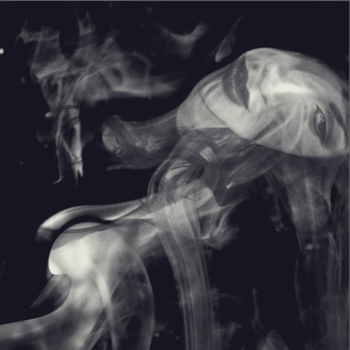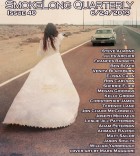Tell me about the original image in “Bear Club.” The violent, cursing, bottle throwing Bears arguing on the back porch. Where did that come from?
During the time that I was working on “Bear Club,” I was reading quite a bit of experimental fiction, specifically James Tate. What intrigued me the most about Tate’s writing was his use of animals acting as humans in order to express human behaviors that were both absurd and disjointed when forced to interact with each other. By doing this, Tate often forced his narrators to come to a realization that is or isn’t acted upon. In “Bear Club,” I was looking to create a similar sense of rupture between the narrator and the “you” to whom he is referring to in the story by implementing an absurdist, yet partially human image like the bears in order to reflect not only how alienated the narrator felt at having lost someone close to him due to a damaged relationship, but also to create a sense that the narrator was beginning to doubt or experiencing confusion in regards to his community and the role that he served in that specific space. Ultimately the conflict or the question in the piece becomes: What is the narrator going to do in order to resolve the issue of the bears, and if he chooses not to act, what does that say about him?
The story moves from the absurd to the sad. When the neighborhood association calls you can feel the narrator’s loss. How do you explain the juxtaposition?
I think this plays to what I explained in the above question. The bears are an absurdist image that severs the narrator’s connection and involvement with the tightly kept, suburban neighborhood that he is a part of. It’s not meant to be political, but the sense of sadness that arises from this juxtaposition is what ultimately brings the narrator to realize how much he is at fault. I guess you could also view the bears as an apparition of the narrator’s guilt.
Which writers influenced this story? Your writing in general?
James Tate is certainly the biggest influence here, but also Joshua Taylor and Zachary Schomburg were also influences in the writing.
What are you working on now?
I am currently working on more microfictions that are similar in tone and style to “Bear Club”, although some of them have gravitated toward being slightly longer pieces.



 The core workshop of SmokeLong Fitness is all in writing, so you can take part from anywhere at anytime. We are excited about creating a supportive, consistent and structured environment for flash writers to work on their craft in a community. We are thrilled and proud to say that our workshop participants have won, placed, or been listed in every major flash competition. Community works.
The core workshop of SmokeLong Fitness is all in writing, so you can take part from anywhere at anytime. We are excited about creating a supportive, consistent and structured environment for flash writers to work on their craft in a community. We are thrilled and proud to say that our workshop participants have won, placed, or been listed in every major flash competition. Community works.